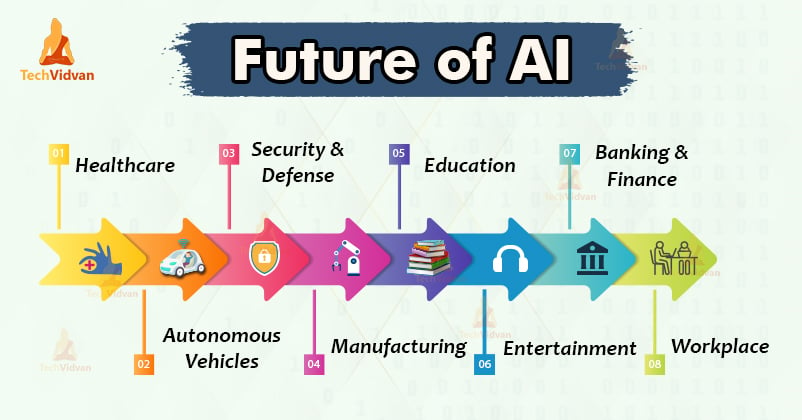Future of AI
Artificial Intelligence (AI) has made remarkable progress in recent years and has already started to transform various industries, including healthcare, finance, transportation, and many more. AI can be defined as the ability of machines to simulate human intelligence and behavior. It encompasses several technologies such as machine learning, natural language processing, robotics, and computer vision. In this paragraph, we will explore some of the incredible things that AI can do.
One of the most significant impacts of AI is in the field of healthcare. With the help of AI, doctors can diagnose diseases and create treatment plans much more accurately and quickly. AI-powered medical devices can analyze vast amounts of data and identify patterns and trends that might be too complex for humans to notice. For example, AI can detect tumors in medical images, identify genetic markers that predispose individuals to certain diseases, and even predict patient outcomes with high accuracy. Additionally, AI can improve patient care by automating administrative tasks such as scheduling appointments and organizing medical records.
Another area where AI is revolutionizing the industry is in the field of finance. Financial institutions are using AI to automate many of their processes, such as fraud detection, credit risk assessment, and algorithmic trading. AI can analyze large amounts of data and identify patterns that are indicative of fraudulent activities. By doing so, it can help financial institutions prevent losses and protect their customers' data. Additionally, AI-powered trading systems can analyze market trends and make predictions about future trends, which can lead to more profitable investments.
AI is also making significant contributions to the transportation industry. Self-driving cars are perhaps the most well-known example of AI in transportation. With the help of AI-powered sensors, cameras, and algorithms, self-driving cars can navigate roads and traffic with ease. This technology has the potential to reduce traffic accidents, increase mobility for those who cannot drive, and reduce traffic congestion. Additionally, AI can help optimize transportation routes and reduce fuel consumption, leading to a more efficient and environmentally friendly transportation system.
Another area where AI is having a significant impact is in the field of customer service. Chatbots and virtual assistants powered by AI can interact with customers and provide them with personalized and responsive support. These systems can answer common customer questions, offer product recommendations, and even help customers make purchases. By doing so, AI-powered customer service systems can improve customer satisfaction and reduce wait times for support.
AI is also transforming the way we work. By automating routine tasks, AI can free up employees to focus on higher-level tasks that require human creativity and problem-solving skills. For example, AI can automatically sort and categorize emails, schedule appointments, and even write reports. Additionally, AI-powered tools can help employees make better decisions by providing them with relevant information and insights in real-time.
Finally, AI is having a significant impact on the way we communicate. Natural language processing technology has made it possible for machines to understand human speech and written language. This technology is used in virtual assistants such as Siri and Alexa, as well as in language translation software. Additionally, AI-powered chatbots are becoming increasingly common on social media platforms and websites, providing customers with instant and personalized support.
In conclusion, AI has the potential to transform various industries and revolutionize the way we live and work. From healthcare to finance, transportation to customer service, and beyond, AI-powered technologies are already making significant contributions to society. While there are challenges to overcome, such as ensuring data privacy and ethical concerns, the benefits of AI are clear. As AI continues to evolve and improve, we can expect to see even more impressive capabilities in the years to come.






Social Plugin